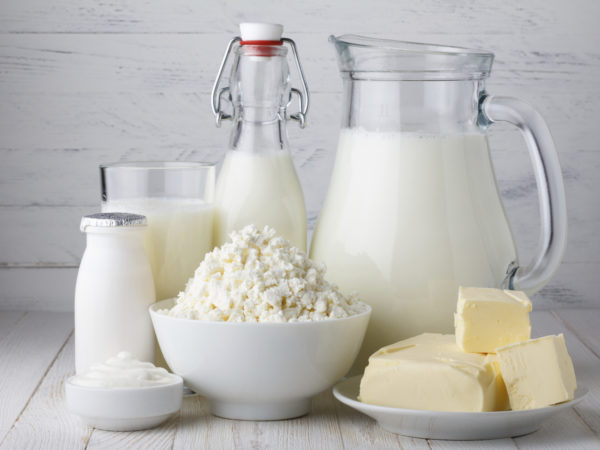Dairy Foods & Diabetes?
I’ve read that eating more dairy foods can reduce the risks of diabetes and high blood pressure. If true, how much dairy should one eat?
Andrew Weil, M.D. | June 29, 2020

You’re referring to a study published in May 2020 that looked at the diets of people in 21 countries worldwide. Results indicted that eating at least two daily servings of dairy foods was associated with lower risks of both diabetes and high blood pressure.
The international team of researchers who conducted the study wrote that earlier investigations suggested that higher intake of dairy foods is linked to lower risks of diabetes, high blood pressure, and metabolic syndrome (a collection of factors that when taken together dramatically increases the risk of heart disease, stroke and diabetes). But they noted that these studies tended to focus on North Americans and Europeans and didn’t provide information about the prevalence of these conditions elsewhere in the world. The new study looked at people between the ages of 35 and 70 in the 21 countries included. The researchers used food frequency questionnaires to assess intake of milk, yogurt, yogurt drinks, cheese, and dishes prepared with dairy products during the previous year. The foods studied were classified as full- or low-fat. They also gathered information on participants’ medical histories, their use of prescription drugs, educational attainment, smoking, weight, height, waist circumference, blood pressure and fasting blood glucose.
Additionally, the study team collected data on all five components of metabolic syndrome for nearly 113,000 people. These include having blood pressure above 130/85 millimeters of mercury (normal is below 120/80), waist circumference of 32 inches or as well as having low levels of high-density lipoprotein (“good”) cholesterol, high triglyceride levels and abnormal fasting blood glucose. Results showed that 46,667 people in the study had metabolic syndrome – meaning they had at least three of the five components.
The researchers tracked the health of 190,000 participants for an average of nine years, during which 13,640 developed high blood pressure and 5,351 were diagnosed with diabetes. They found that intake of at least two daily servings of dairy foods was associated with a 24 percent lower risk of metabolic syndrome. This rose to a 28 percent lower risk for full-fat dairy products alone, compared with no daily intake of dairy foods. The study also showed that consuming at least two daily servings of dairy foods was associated with an 11 to 12 percent lower risk of diabetes and high blood pressure. The risk of these conditions was 13 to 14 per cent lower among people who consumed three daily servings of dairy foods. The associations were stronger for full-fat products than for low-fat ones.
If these findings are confirmed in large and long-term trials, increasing dairy consumption may be recommended as a low-cost means of reducing the risk of hypertension, diabetes and ultimately cardiovascular disease worldwide. (Be aware, however, that men who eat a lot of dairy products appear to be at higher than normal risk of prostate cancer. Researchers from the Mayo Clinic have noted that prostate cancer rates are lower in Asian countries where dairy consumption is low.)
Andrew Weil, M.D.
Source:
Balaji Bhavadharini, et al, “Association of dairy consumption with metabolic syndrome, hypertension and diabetes in 147,812 individuals from 21 countries.” BMJ Open Diabetes Research & Care, May 18, 2020, DOI: 10.1136/bmjdrc-2019-000826












